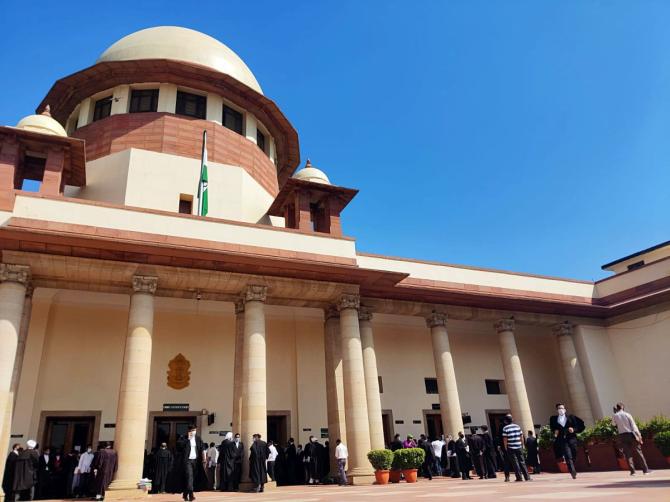Dismayed over "disappointing" standards of police probe across the country, the Supreme Court has said it was high time a “consistent and dependable code of investigation” was devised along with mandatory procedure for investigators to ensure guilty do not walk free on technical grounds.

The top court made the observations in a judgement by which it set aside the conviction of three people, including the two death row convicts, in a case of kidnapping and murder of a 15-year-old boy in Madhya Pradesh.
“The higher principle of ‘proof beyond reasonable doubt' and more so, in a case built on circumstantial evidence, would have to prevail and be given priority. It is high time, perhaps, that a consistent and dependable code of investigation is devised with a mandatory and detailed procedure for the police to implement and abide by during the course of their investigation so that the guilty do not walk free on technicalities, as they do in most cases in our country. We need to say no more,” it said.
Setting free the three convicts, a bench comprising Justices BR Gavai, JB Pardiwala and Sanjay Kumar said in a case resting on circumstantial evidence, the prosecution must establish a chain of unbroken events unerringly pointing to the guilt of the accused and none other.
The bench expressed its dismay over the nature of the police probe and said, “Before parting with the case with our verdict, we may note with deep and profound concern the disappointing standards of police investigation that seem to be the invariable norm."
Ajit Pal, a 15-year-old boy, was brutally killed in the last week of July, 2013 allegedly by his neighbours Om Prakash Yadav, his brother Raja Yadav and son Rajesh. The boy was kidnapped for ransom after his mother received a substantial amount of money from the sale of some properties.
In 2016, a trial court in Jabalpur convicted all three of offences including murder and kidnapping for ransom under the IPC.
While Om Prakash Yadav was sentenced to life imprisonment, Raja Yadav and Rajesh Yadav, his brother and son respectively, were awarded death penalty. The high court also upheld their conviction and sentence in the case which hinged on circumstantial evidence.
Writing the 35-page judgement for the bench, Justice Sanjay Kumar said when a case rests solely on circumstantial evidence several legal requirements have to be satisfied.
“The circumstances from which an inference of guilt is sought to be drawn must be cogently and firmly established and those circumstances should be of a definite tendency unerringly pointing towards guilt of the accused,” the bench said referring to judgements.
The circumstances, taken cumulatively, should form a chain so complete that there is no escape from the conclusion that within all human probability the crime was committed by the accused and none else, the court said. It said the prosecution utterly failed to pass muster in establishing its case.
The court also referred to the report of the Law Commission and said it was observed that “the principal causes of low rate of conviction in our country, inter alia, included inept, unscientific investigation by the police and lack of proper coordination between police and prosecution machinery.”
“Despite passage of considerable time since these gloomy insights, we are dismayed to say that they remain sadly true even to this day. This is a case in point,” it said and referred to 2003 report of Justice VS Malimath Committee on Reforms of Criminal Justice System,
Referring to the facts of the case, the bench said, “A young boy in the first flush of youth was cruelly done to death and the wrongdoers necessarily had to be brought to book for the injustice done to him and his family.”
“However, the manner in which police tailored their investigation, with complete indifference to the essential norms in proceeding against the accused and in gathering evidence; leaving important leads unchecked and glossing over other leads that did not suit the story that they had conceived; and, ultimately, in failing to present a cogent, conceivable and fool-proof chain of events pointing to the guilt of the appellants, with no possibility of any other hypothesis, leaves us with no option but to extend the benefit of doubt to the appellants,” it said.
It also found fault with the verdicts of the trial court and the high court and said they handed down the death penalty to two convicts without recording any valid reason that the case fell under the ‘rarest of rare cases', warranting the capital punishment.
“It is indeed perplexing that, despite the innumerable weak links and loopholes in the prosecution's case, the trial court as well as the high court were not only inclined to accept the same at face value but went to the extent of imposing and sustaining capital punishment on Rajesh Yadav and Raja Yadav.
“No valid and acceptable reasons were put forth as to why this case qualified as the ‘rarest of rare cases', warranting such drastic punishment,” it said.











 © 2025
© 2025